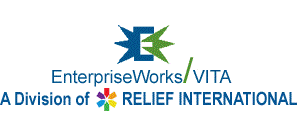2008/12 TransLinks Rattan Value Chain Workshop (Palawan, Philippines)

OVERVIEW
Value Chain work too often makes the false assumption that community raw material suppliers are the value chain participants in most need of capacity building that allow them to integrate conservation, social, and management issues into their activities. Community groups that harvest and sell non-timber forest products, including rattan, are often rural, poor, less educated, and have few, if any opportunities, to interact with the end markets. Dependent on middlemen or traders, these raw material suppliers face disincentives to improve quality when other value chain actors fail to invest in grading systems, proper storage facilities, and reliable market information. This is the case for rattan harvesters in the Philippines, who sell to local traders that do not grade the rattan poles, often store the poles incorrectly leading to black mold staining, and are disconnected from the end market preferences on pole length, diameter, rattan varieties, and peak pole demand seasons.
By contrast, the Philippines’ furniture industry manufacturers appear sophisticated, with world class designers selling their furniture and home accessories in New York, Los Angeles, Paris, London, and Rome. Rattan furniture designs are in top demand from high end furniture stores and rattan home accessories can be found in leading department stores in the U.S. and Europe. These manufacturers employ thousands of workers and manage containers of exports every month. One would think that their knowledge of the rattan value chain is high, but in actuality ignorance is widespread within the industry on how the value chain operates at the forest level, where the rattan is sourced. Of the manufacturers who participated in this workshop and visited the rattan harvesting areas, 100% were seeing rattan growing in the wild for the first time and had little or no knowledge of growing conditions within the forest. This knowledge gap and lack of engagement in the rattan sourcing portion of the value chain has led to severe shortages of high quality rattan, compromising the Philippines furniture sales.
It is in this context that the TransLinks Rattan Sourcing Workshop: A Visit to the Rattan Harvesters was held in Palawan, Philippines on December 2 - 3, 2008 as a follow-up to the July, 2008 workshop in Cebu. As part of promoting an overall sustainable sourcing program for rattan and other non-timber forest products (NTFPs), the Cebu Furniture Industries Foundation, which represents over 300 manufacturers in the Cebu area of the Philippines, co-hosted with TransLinks “Improving Value Chain Dynamics for Natural Products in the Furniture, Gifts & Home Decor and Fashion Accessories Industry” in July 2008. Rattan gatherers, community rattan concession holders, manufacturers, and local NGOs learned about the value chain dynamics, NTFPs and forest management in the context of biodiversity conservation, and tenure and governance issues that impact NTFPs in the Philippines. The workshop also included facilitated visits to manufacturing facilities to learn how the rattan is crafted into the end products and the market demand and competition factors that manufacturers face; i.e. timing of orders, seasonal demand cycles, manufacturing processing steps, and how rattan quality impact product production steps.
While the Cebu July 2008 workshop focused on the manufacturing to final consumer steps in the rattan value chain, the December 2008 workshop in Palawan emphasized value chain steps at the forest management, harvest, post harvest, storage and transport functions. The rattan harvesters hosted the rattan manufacturers on a visit to the rattan harvesting areas and post harvesting processing and storage areas. A facilitated value chain assessment discussion was then held to exchange knowledge on how practices could be improved with the rattan harvesters educating the manufacturers on the forest sustainability, biodiversity conservation and social constraint issues.
While this case deals with rattan in the Philippines, the same issues play out around the world for non-timber forest products (NTFPs) and the high end manufacturers that depend on them for their product lines. For this reason, the proceeding are written as a set of guidelines that can be used by other groups interested in bringing together multiple actors within a value chain to achieve triple bottom line results – conservation, economic improvements, and social equity also referred to as nature, wealth and power.
WORKSHOP PROCEEDINGS

Proceedings is organized to provide guidance on how to organize and facilitate a value chain actors’ workshop and field trip. The guidance and Palawan reporting are divided into five steps that can be used by groups planning to organize similar value chain coordination events:
1. How to organize a facilitated value chain actors’ workshop and field trip;
2. How to provide a value chain/subsector structure along with local context information to maximize information sharing among the participants;
3. How to make the most of being in the field to combine value chain steps with suppliers’ and buyers’ experiences;
4. How to facilitate prioritizing of information and suggested improvements;
5. How to close a field visit with specific follow-up actions that advance to value chain improvements after the workshop
PARTNERS INVOLVED IN PRODUCING THIS EVENT




